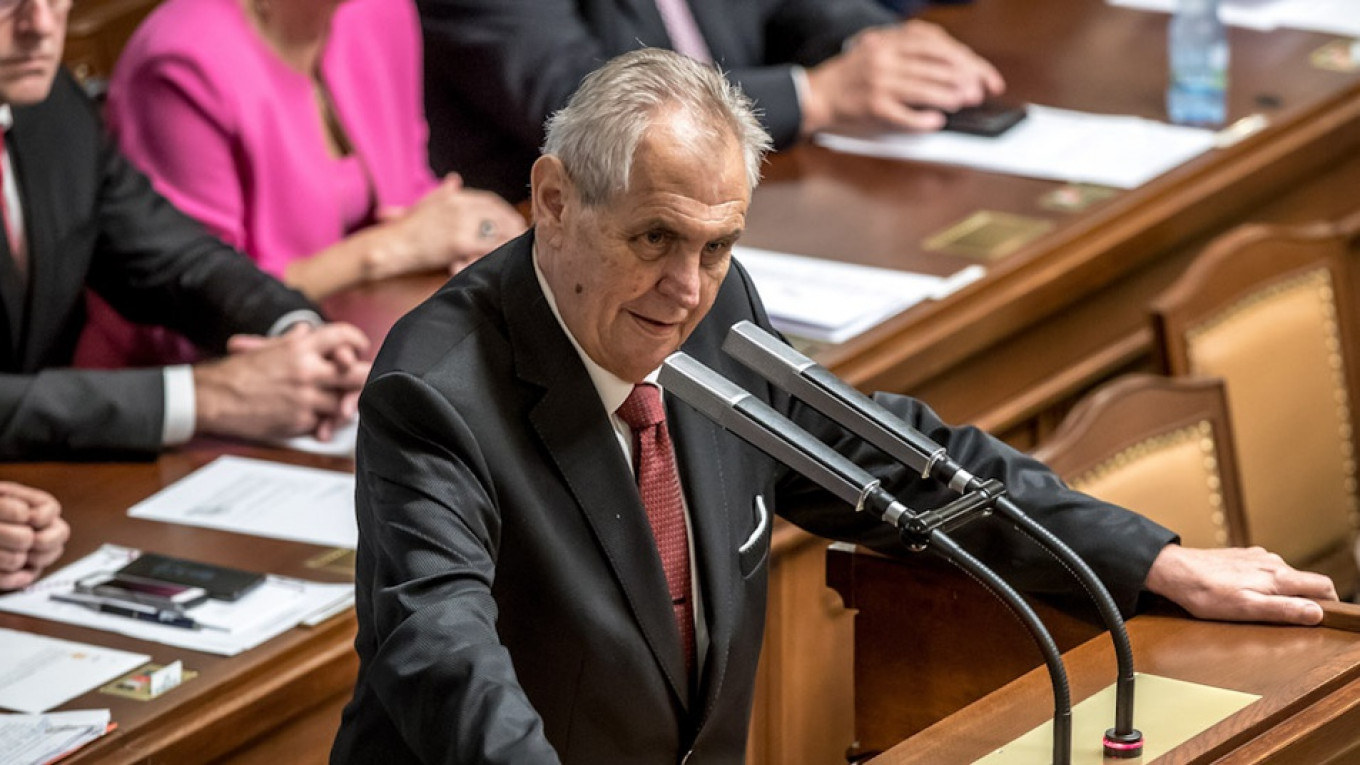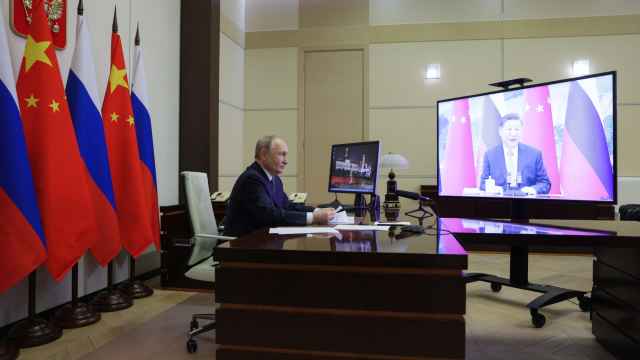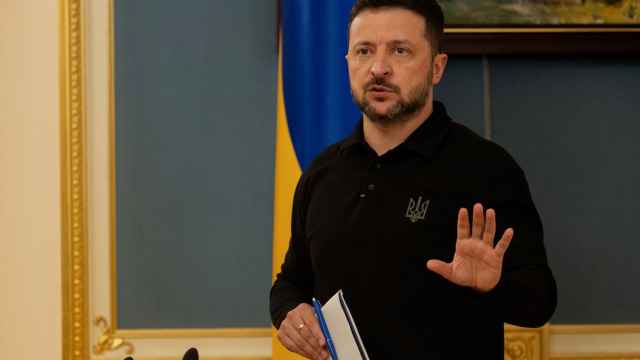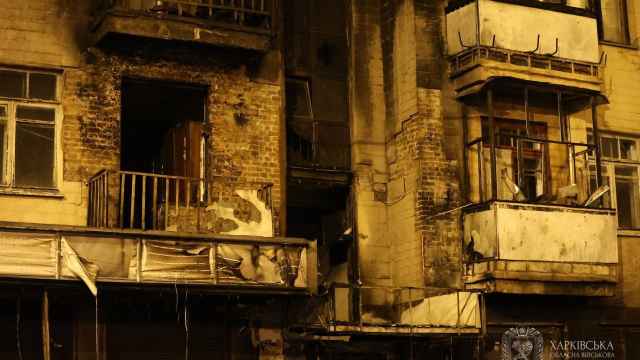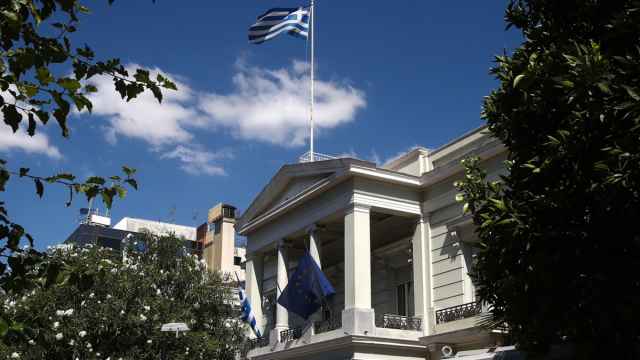As his country commemorates the 50th anniversary of the Soviet invasion that crushed an effort to ease the totalitarian grip of Communism known as the Prague Spring, the Czech Republic’s president is staying silent.
Milos Zeman, an ardent supporter of Russian President Vladimir Putin, refused to mark Tuesday’s anniversary of the 1968 invasion of then Czechoslovakia. His absence from the national stage underscores an intensifying struggle between political forces trying to uphold democratic values in the European Union against a group of populist leaders pursuing "illiberal democracy" and challenging a status a quo that was decades in the making.
Zeman sent his little-known deputy chief of staff to an event in central Prague attended by Prime Minister Andrej Babis, where a crowd of whistling protesters drowned out the premier’s speech. They waved placards denouncing his reliance on the Communist Party — the descendants of the totalitarian regime behind the invasion — to stay in power. Zeman himself hasn’t commented on the anniversary, and Czech public television will air a speech by his Slovak counterpart, Andrej Kiska, whose country split from the Czechs in 1993.
"Freedom and democracy are primarily about this: I can recognize that someone has the right to a different opinion," Babis, who was labeled as an informant of the communist regime in his native Slovakia, said at the event.
‘Orgy of hate’
Once a moderate intellectual and pro-Western Social Democrat prime minister, Zeman has joined a pantheon of euroskeptic leaders including Hungarian Prime Minister Viktor Orban who have boosted ties with Putin. His office rejected criticism as "an orgy of hate" and pointed to Zeman’s opposition to the post-invasion regime, for which he was thrown out of the Communist Party and his university teaching job in 1970.
"The president was courageous at a time when courage didn’t come cheap, and that’s worth much more than a thousand speeches delivered 50 years later," Zeman’s spokesman, Jiri Ovcacek, said on Twitter last week. "The occupation was a crime. The president’s view hasn’t changed since 1968."
Soviet forces swarmed across Czechoslovakia’s borders to put Kremlin-backed hardliners back in power, reintroduce censorship, and sever nascent ties with democratic states. Scores of people were killed and hundreds wounded in the invasion. It ushered in more than two decades of armed occupation and a crackdown on civil society that saw many people persecuted and jailed. The regime ended with the 1989 Velvet Revolution in which Zeman allied with dissident Vaclav Havel, who became the first post-communist president.
Since then, the Czechs have joined NATO and the European Union and watched living standards jump to surpass those in older EU members Portugal and Greece.
‘Pro-Russian sympathies’
Still, populist politicians have made gains with anti-immigrant platforms that portray established parties as incompetent and corrupt. That approach helped Babis, the prime minister, prevail in 2017 elections. He’s now in a minority administration that survives with the tacit backing of the Communists, and he’s drawn criticism from across the political spectrum for giving them their biggest role since the fall of the Iron Curtain.
Zeman, who has courted far-right parties in an anti-immigrant campaign that has put the nation of 10.6 million people at odds with many of its EU partners, has applauded the tie-up. Backed by advisers with links to Russia, he has also denounced U.S. and EU sanctions against Russia for its 2014 annexation of Crimea from Ukraine and stoking a separatist war in that country’s east.
"I’m calling on you not to neglect your constitutional obligations,” Jiri Pospisil, head of the opposition party TOP 09 and a former justice minister, wrote in an open letter to Zeman. "Despite your pro-Russian sympathies, both you and I are citizens of one country that in 1968 dreamed its dream about a just social order. The occupation put an end to this dream."
A Message from The Moscow Times:
Dear readers,
We are facing unprecedented challenges. Russia's Prosecutor General's Office has designated The Moscow Times as an "undesirable" organization, criminalizing our work and putting our staff at risk of prosecution. This follows our earlier unjust labeling as a "foreign agent."
These actions are direct attempts to silence independent journalism in Russia. The authorities claim our work "discredits the decisions of the Russian leadership." We see things differently: we strive to provide accurate, unbiased reporting on Russia.
We, the journalists of The Moscow Times, refuse to be silenced. But to continue our work, we need your help.
Your support, no matter how small, makes a world of difference. If you can, please support us monthly starting from just $2. It's quick to set up, and every contribution makes a significant impact.
By supporting The Moscow Times, you're defending open, independent journalism in the face of repression. Thank you for standing with us.
Remind me later.


